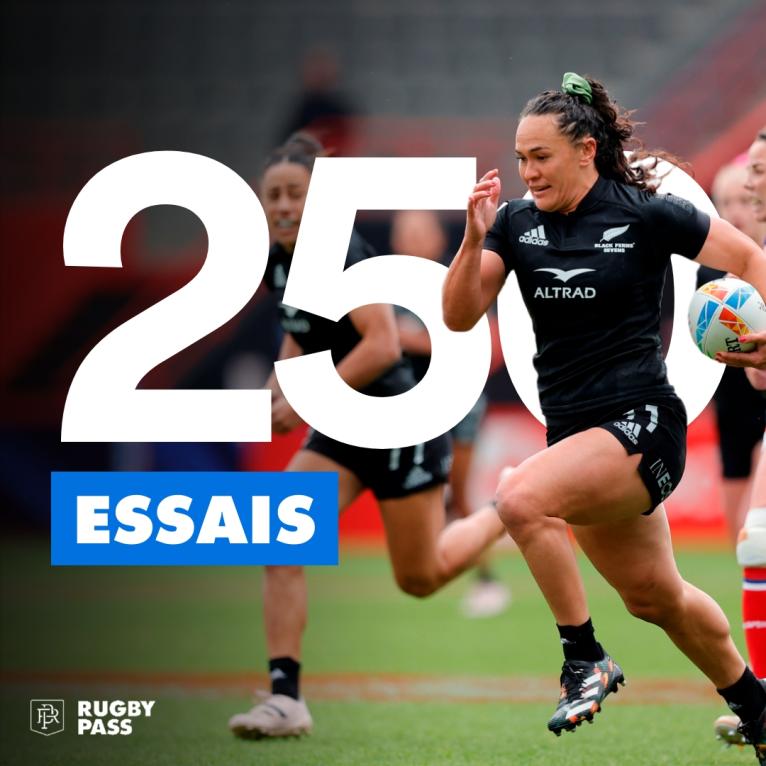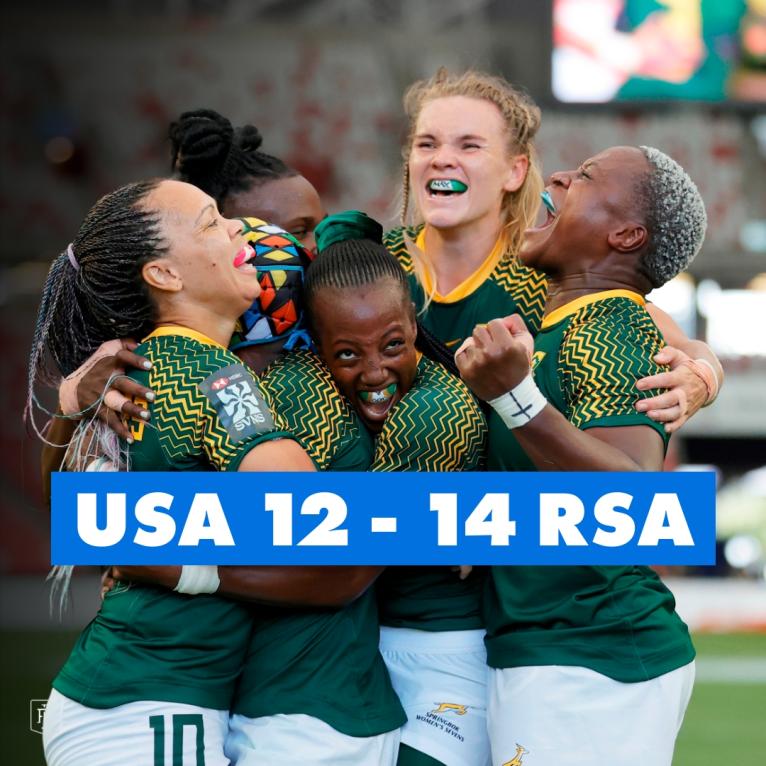Les Françaises sans pitié à Singapour

La Nouvelle-Zélande et l’Australie ont poursuivi leur course au titre de vainqueurs de la saison au HSBC SVNS Singapour, alors que la Grande-Bretagne et le Brésil n’ont pas réussi à s’assurer la dernière place en jeu pour la Grande Finale de Madrid.
En tête du classement féminin avec 106 points chacune avant le tournoi de Singapour, la meilleure performance entre la Nouvelle-Zélande et l’Australie ce week-end sera récompensée par le titre de vainqueur de la saison. Les deux équipes ont terminé la première journée avec deux victoires sur deux et ont pris la tête de leur poule respective.
La Grande-Bretagne, qui lorgne la dernière place à Madrid avec deux points d’avance sur le Brésil, neuvième, a perdu ses deux matchs contre les Fidji puis l’Australie, mais le Brésil n’a pas pu profiter de la situation, n’ayant pas réussi à s’imposer non plus contre les mêmes adversaires.
Les deux équipes s’affronteront demain dans un match crucial pour les espoirs de chaque nation de se qualifier dans le Top 8.
Par ailleurs, l’Afrique du Sud, 11e au classement, a créé la surprise de la journée en battant les États-Unis 14-12 grâce à un essai sur la dernière action du match, mais elle a été battue 49-0 par une impressionnante équipe de France qui a marqué 83 points cumulés lors de ses deux premiers matchs.
Poule A : Portia Woodman-Wickliffe atteint les 250 points

La Nouvelle-Zélande a poursuivi sa dynamique inarrêtable à Singapour en s’imposant 38-7 contre l’Espagne lors de son premier match, avant de battre l’Irlande 31-10. Les leaders des Series ont pris l’avantage après la première période par 12-5, Portia Woodman-Wickliffe ayant marqué son 250e essai sur le circuit, et ont ajouté trois autres essais en deuxième période pour se qualifier pour les quarts de finale.
Malgré sa défaite, l’Irlande occupe la deuxième place de la poule A après qu’un seul point lui ait suffi pour battre le Canada 5-0 lors de son premier match. Le score s’est débloqué juste avant la mi-temps, l’essai de Vicki Elmes Kinlan s’avérant décisif.
Le Canada, 5e au classement, s’est remis de sa défaite de la première session pour battre l’Espagne 28-7 en toute confiance et garder ses espoirs de qualification pour les quarts de finale.
Poule B : La France féroce

La France a commencé en trombe pour consolider sa troisième place au classement général avec deux performances dominantes à Singapour. Après une victoire par sept essais 41-7 contre le Japon, elle a battu l’Afrique du Sud 49-0, marquant sept autres essais sans manquer une seule transformation.
Ce deuxième résultat est décevant pour les Springbok Women, qui avaient si bien joué pendant leur incroyable remontée de 14 à 12 contre les États-Unis lors de leur premier match du week-end.
L’Afrique du Sud était menée de cinq points au moment où le chronomètre passait au rouge, mais elle a marqué sur une mêlée à cinq mètres, Simamkele Namba plongeant à droite des poteaux pour permettre à Nadine Roos de réussir la transformation décisive.
Les États-Unis, qui ont remporté le bronze et l’argent lors de leurs deux derniers tournois, ont aggravé leurs malheurs en s’inclinant 22-12 face au Japon dans leur deuxième match, leur première victoire contre les Américaines depuis 2015. Avec la France à jouer demain, se qualifier pour les quarts de finale de Cup ne sera pas chose aisée pour les États-Unis.
Poule C : l’Australie en tête
Délogée de la première place du classement qu’elle occupait depuis le début de la saison, l’Australie a réagi en remportant deux victoires sur deux lors de la première journée. Les Australiennes ont d’abord battu le Brésil 27 à 10, mais ont dû travailler dur pour cela, les Sud-Américaines étant au coude à coude à 10-10 jusqu’à la neuvième minute.
Le Brésil avait besoin d’un résultat pour remettre la pression sur la Grande-Bretagne, mais l’avance de 19-0 des Fidji à la pause était trop importante pour être surmontée, les Fidji marquant deux fois de plus pour s’imposer 29-7.
La Grande-Bretagne, quant à elle, s’est inclinée 24-10 face à des Fidjiennes pleines de fougue. Un point de bonus contre l’Australie aurait pu être décisif pour leur dernière place au classement, mais les prétendantes au titre ont été à leur meilleur lors du dernier match de la journée en inscrivant huit essais pour s’imposer 42-0.





























